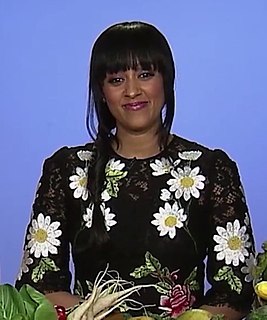A Quote by Michael Emerson
It's one of the things we find in these congregations is that they are much more likely to be sort of up-beat worship styles, more likely that people in these congregations say "Amen," maybe get up and dance some, tend to be a little bit more lively than a typical white service would be, but not as lively as a typical black service would be.
Related Quotes
You find the most in not any particular denomination specifically. It's the style of worship. So if we have what we call a charismatic worship style, that means upbeat music and a more lively style of preaching usually, people are allowed to clap, say "Amen," whether they're mainline Protestant, conservative Protestant, and Catholics, whatever, they're much more likely to be integrated.
The Christian's life in all its aspects-intellectual and ethical, devotional and relational, upsurging in worship and outgoing in witness-is supernatural; only the Spirit can initiate and sustain it. So apart from him, not only will there be no lively believers and no lively congregations, there will be no believers and no congregations at all.
Once in a while you get people that maybe because of economic reasons, or have a social network, they get attracted. But it's a very tiny percent so that when we look at, you know, who are pastors and who are the head clergy of these congregations, they're overwhelmingly white, just a few African Americans, and those folks are usually called to what were formerly white congregations, or they started interracial church from the get-go.
I think that you may find that Tamera's a little more vibrant and energetic, but I'm much more likely to go up to a person and say, "Hi, I'm Tia, nice to meet you". Wheras Tamera is like...well ...she's a little shy. She's down to earth. I'm more extroverted and she's more introverted when meeting people.
I think that you may find that Tamera's a little more vibrant and energetic, but I'm much more likely to go up to a person and say, 'Hi, I'm Tia, nice to meet you.' Whereas Tamera is like... well... she's a little shy. She's down to earth. I'm more extroverted and she's more introverted when meeting people.
I feel like I have more experience with publishing humor than pretty much any editor I'm going to be dealing with so sometimes I'll get a little bit nuts if I write something I know is good a certain way, and some editor because of some restriction he has and wants to change it that I know is going to make it less funny that'll piss me off and then I'm inclined to go, "Well, hey I've been doing this a long time, maybe you should..." That doesn't happen that often, but I'm more likely to say that now than I would have been a long time ago. Because dammit, I'm infallible!
You know, there was a recent poll which said that young people in the generation of the students here felt it was far more likely that they would see a UFO than that they would draw Social Security... It's very important you understand this. Once you understand this, you realize this is not an episode from the X Files, and you're not more likely to see a UFO if you do certain specific things.
People who graduate are more resilient financially, and they weather economic downturns better than people who don't graduate. And, throughout their lives, people who graduate are more likely to be economically secure, more likely to be healthy, and more likely to live longer. Face it: A college degree puts a lot in your corner.
A lot of my books deal with very controversial issues that most people often don't want to talk about, issues that, in my country, are more likely to get put under the carpet than get discussed. And when you talk about moral conundrums, about shades of gray, what you're doing is asking the people who want the world to be black and white to realize instead that maybe it's all right if it isn't. I know you'll learn something picking up my books, but my goal as a writer is not to teach you but to make you ask more questions.
































